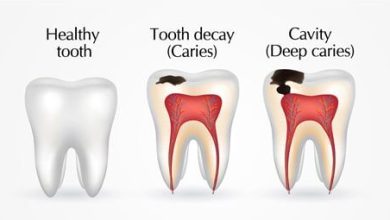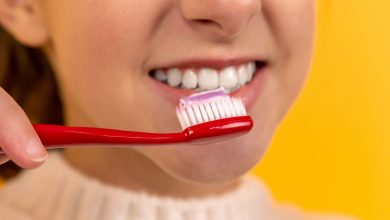Can You Stop Tooth Decay? Discover the Powerful Techniques

Yes, tooth decay can be stopped by practicing good oral hygiene and visiting the dentist regularly for preventive care. Tooth decay is a common dental problem that occurs when bacteria in the mouth produce acids that erode tooth enamel.
By brushing and flossing daily, and limiting sugary foods and drinks, you can reduce the bacteria and plaque buildup that lead to decay. Regular dental check-ups allow for early detection and treatment of any cavities or dental issues, minimizing the risk of further decay.
Taking these preventive measures can help maintain a healthy smile and prevent tooth decay from progressing.
Understanding Tooth Decay
What Is Tooth Decay And How Does It Occur?
Tooth decay, also known as dental caries or cavities, is a common chronic disease that affects the structure of teeth. It occurs when the outer layer of the tooth, the enamel, is damaged by acids produced by bacteria. These bacteria feed on the sugars present in the food and drinks we consume, producing acids that erode the enamel over time. If left untreated, tooth decay can progress and affect deeper layers of the tooth, leading to pain, infection, and even tooth loss.
Factors Contributing To Tooth Decay
Several factors contribute to the development of tooth decay. Poor oral hygiene, such as inadequate brushing and flossing, allows bacteria to thrive in the mouth, increasing the risk of decay. Consuming sugary and acidic foods and drinks, such as soda and candy, also promotes the growth of bacteria and acid production. Additionally, individuals with dry mouth, recessed gums, or a genetic predisposition to weak enamel may be more susceptible to tooth decay.
The Consequences Of Neglected Tooth Decay
Neglected tooth decay can have serious consequences for oral health. It can lead to tooth sensitivity, pain, and difficulty chewing. As decay progresses, it may result in the need for costly dental treatments, such as fillings, root canals, or even extractions. Furthermore, untreated tooth decay can contribute to gum disease, bad breath, and overall poor oral health. Regular dental check-ups and practicing good oral hygiene are crucial to preventing and addressing tooth decay.

Credit: dentistry.uic.edu
Preventing Tooth Decay Through Effective Oral Hygiene
Adopting a daily oral hygiene routine is essential in preventing tooth decay and maintaining optimal dental health. The first step is choosing the right toothbrush and toothpaste. Opt for a toothbrush with soft bristles and replace it every three to four months or sooner if the bristles are frayed. Fluoride toothpaste is highly recommended as it helps strengthen enamel and protect against decay.
Proper brushing technique is crucial for removing plaque and preventing cavities. Brushing at least twice a day for two minutes each time is recommended. Use gentle, circular motions and pay attention to all tooth surfaces, including the gumline. Additionally, don’t forget about the importance of flossing. Regular flossing removes plaque and food particles trapped between teeth that brushing alone may miss.
By following a daily oral hygiene routine and incorporating these tips, you can greatly reduce the risk of tooth decay and maintain a healthy smile.
The Role Of Diet In Preventing Tooth Decay
One of the most important factors in preventing tooth decay is a healthy diet. The impact of sugar on tooth decay cannot be ignored. Consuming excessive amounts of sugar can lead to the production of harmful acids by bacteria in the mouth, which can erode the tooth enamel and cause decay.
However, there are also foods that promote oral health and reduce decay risk. Incorporating these into your diet can be beneficial in preventing tooth decay. Foods such as fruits, vegetables, and dairy products are rich in essential nutrients like vitamins and minerals that strengthen teeth and gums.
Another important aspect of a tooth-friendly diet is the consumption of calcium-rich foods for strong teeth. Calcium is essential for maintaining strong and healthy teeth, so it is advisable to include foods like milk, cheese, and yogurt in your diet.
Professional Dental Care For Preventing Tooth Decay
Professional Dental Care for Preventing Tooth Decay
Tooth decay is a common dental problem that can affect people of all ages. However, with regular dental check-ups and cleanings, you can take preventive measures to stop tooth decay from progressing. These professional treatments play a vital role in maintaining good oral health.
Regular dental check-ups and cleanings:
Regular visits to the dentist are essential for preventing tooth decay. During these check-ups, your dentist will thoroughly examine your teeth and gums, looking for any signs of decay or other dental issues. Professional cleanings remove plaque and tartar buildup, reducing the risk of tooth decay.
Professional treatments for tooth decay prevention:
| Dental sealants | Dental sealants are protective coatings applied to the chewing surfaces of the back teeth, where tooth decay often occurs. They provide a barrier against bacteria and food particles, preventing cavities. |
| Fluoride applications | Fluoride is a mineral that helps strengthen tooth enamel and make it more resistant to decay. Professional fluoride applications, like varnish or gel, can be applied during a dental visit to provide extra protection. |
By prioritizing regular dental check-ups, cleanings, and professional treatments such as dental sealants and fluoride applications, you can significantly reduce the risk of tooth decay and maintain a healthy smile. Remember, prevention is key in the fight against tooth decay!
Natural Remedies For Fighting Tooth Decay
There are several natural remedies that can help stop tooth decay and promote oral health.
One effective method is oil pulling, which involves swishing oil (such as coconut oil or sesame oil) in your mouth for about 20 minutes. This process helps remove harmful bacteria and toxins, improving overall oral health.
Another way to fight tooth decay naturally is by using herbal mouth rinses and homemade toothpaste. These products can be made using ingredients like neem oil, clove oil, and baking soda, which have antibacterial and anti-inflammatory properties.
Incorporating remineralizing agents into your oral care routine is also beneficial. These agents, such as calcium, fluoride, and phosphates, help rebuild the minerals in your teeth and strengthen tooth enamel, preventing further decay.
Breaking Bad Habits That Contribute To Tooth Decay
Breaking Bad Habits that Contribute to Tooth Decay
The effects of tobacco and alcohol on oral health:
Using tobacco products, such as cigarettes and smokeless tobacco, greatly increases the risk of tooth decay and gum disease. Tobacco contains harmful chemicals that can damage tooth enamel and lead to cavities. It also reduces saliva production, which is essential for neutralizing acids and protecting teeth. Alcohol consumption can also have negative effects on oral health. Excessive alcohol use can lead to dry mouth, which reduces saliva flow and promotes tooth decay. It can also cause irritation and inflammation of the gums, increasing the risk of gum disease.
Reducing the consumption of acidic and staining foods/beverages:
Foods and beverages that are high in sugar and acidic can contribute to tooth decay. Acidic foods and drinks, such as citrus fruits, soda, and energy drinks, erode tooth enamel over time, making teeth more susceptible to decay. Staining foods and beverages, like coffee, tea, and red wine, can also cause discoloration and weaken tooth enamel. Limiting the intake of these harmful substances and replacing them with healthy alternatives, such as water, milk, and fresh fruits and vegetables, can help prevent tooth decay and maintain oral health.
Breaking the habit of nail biting and teeth grinding:
Nail biting and teeth grinding, also known as bruxism, can have detrimental effects on tooth health. Nail biting can cause teeth to chip, crack, or become misaligned. It can also introduce bacteria into the mouth, increasing the risk of infection. Teeth grinding, especially during sleep, puts excessive pressure on teeth and can lead to enamel wear and tear, tooth sensitivity, and even tooth fractures. Identifying the underlying causes of these habits, such as stress or anxiety, and seeking appropriate treatment or therapy can help eliminate these destructive behaviors and protect tooth health.
Additional Strategies For Preventing Tooth Decay
To prevent tooth decay, there are additional strategies you can incorporate into your oral care routine. Proper hydration plays a crucial role in maintaining good oral health. When you are well hydrated, your saliva production increases, helping to wash away food particles and reduce the risk of decay. It is also important to avoid excessive snacking and sipping throughout the day, as this can increase the amount of time that your teeth are exposed to sugars and acids. Using a fluoride mouthwash can provide added protection by strengthening your tooth enamel. Incorporating these strategies into your daily routine, along with regular brushing and flossing, will help you maintain a healthy smile and prevent tooth decay.
Long-term Maintenance Of Dental Health
Long-Term Maintenance of Dental Health
The significance of consistent oral care routines cannot be overstated. By following a regular dental hygiene regimen, individuals can effectively prevent tooth decay and maintain optimal oral health for years to come. Monitoring oral health changes is crucial in identifying any potential issues early on. Regular dental check-ups and professional cleanings should be scheduled to ensure that any developing problems are addressed promptly. Seeking professional advice from a dentist is essential for diagnosing and treating tooth decay effectively.
Educating others about tooth decay prevention techniques is equally important. By sharing knowledge about oral health, individuals can empower others to adopt healthy habits and make informed decisions about their dental care. Communicating the importance of regular brushing, flossing, and using mouthwash can help prevent tooth decay in individuals of all ages.
By prioritizing consistent oral care routines and promoting education, individuals can take active steps towards stopping tooth decay and maintaining their dental health in the long term.
Frequently Asked Questions For Can You Stop Tooth Decay?
Can You Stop Tooth Decay Once It Starts?
Yes, tooth decay can be stopped once it starts. Through regular dental visits, proper oral hygiene, and a balanced diet, the progression of decay can be halted. Dental treatments like fillings, root canals, and crowns can also help restore and prevent further decay.
Can Tooth Decay Be Restored?
Yes, tooth decay can be restored. Dentists can use fillings or dental crowns to restore decayed teeth and prevent further damage. It’s important to seek dental treatment to address tooth decay and maintain good oral health.
Can You Stop Tooth Decay From Getting Worse?
Yes, you can prevent further tooth decay by practicing good oral hygiene, such as brushing and flossing regularly, avoiding sugary foods and drinks, and visiting your dentist for regular check-ups.
Can You Stop Tooth Decay In Its Tracks?
Yes, tooth decay can be stopped in its tracks with proper dental care and oral hygiene. Regular brushing, flossing, and dental check-ups help prevent decay and maintain a healthy smile.
Conclusion
With proper oral hygiene practices and regular dental checkups, you can significantly reduce the risk of tooth decay. Following a balanced diet, limiting sugary foods and drinks, and implementing fluoride treatments can also contribute to maintaining healthy teeth. Remember, prevention is key when it comes to stopping tooth decay and preserving your dental health for the long term.
So, take charge of your oral care routine and make it a priority in your daily life.





